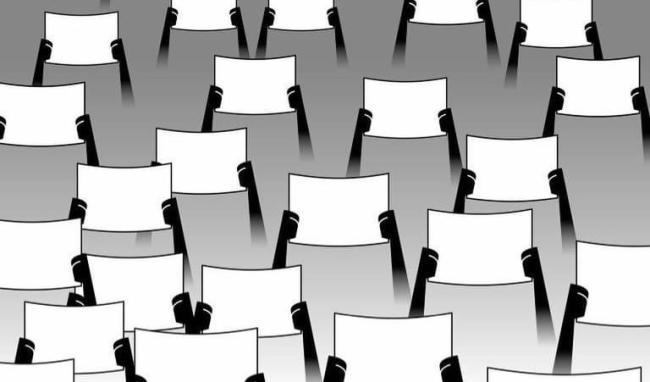China’s ruling Communist Party appears to have postponed a key political meeting, in a move analysts said suggests that party leader Xi Jinping faces strong currents of dissent from within party ranks that he may not be able to keep under wraps at a plenary session, RFA reports:
The third plenary session of the Central Committee – the party’s biggest decision-making body – is typically held a year after a new leadership takes power, yet Xi’s third term in office was nodded through by the 20th party congress in October 2022, with the latest Politburo meeting wrapping up on Nov. 27 with no word of a third plenary session. Now, Xi is on a trip to Shanghai, which saw widespread calls for his resignation during the “white paper” protests of 2022, a move that likely rules out any plenary session at least until next month.
“A major dictatorship relies on its rituals to maintain public trust and respect for its imperial power,” said U.S.-based political scientist Wang Juntao. “If these don’t happen, then it risks losing its grip on power.”
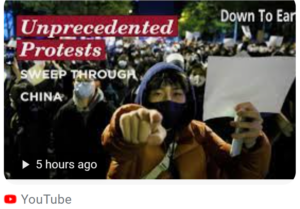 A year has passed since China’s White Paper demonstrations – the largest since the 1989 Tiananmen Square democracy movement – caught the world by surprise, notes Freedom House expert Yaqiu Wang. Stringent censorship and surveillance, however, have made public commemorations inside the country nearly impossible. Words and names associated with the protests continue to be banned online, protest sites are cordoned off by police, and those who participated in 2022 still face police harassment, she writes for The Diplomat:
A year has passed since China’s White Paper demonstrations – the largest since the 1989 Tiananmen Square democracy movement – caught the world by surprise, notes Freedom House expert Yaqiu Wang. Stringent censorship and surveillance, however, have made public commemorations inside the country nearly impossible. Words and names associated with the protests continue to be banned online, protest sites are cordoned off by police, and those who participated in 2022 still face police harassment, she writes for The Diplomat:
For many people in China, the biggest takeaway from the protests was that far more of their compatriots are deeply dissatisfied with the regime than they previously realized. Freedom House research shows that at least 72 protests were held across 17 provinces and regions during the last week of November 2022 alone. “I could not have possibly imagined that so many people would come today,” a protester in Shanghai said on the popular Chinese-language podcast Bumingbai.
“This is a generation that is thought to be politically inert and brainwashed by patriotic education,” said Diana Fu, an associate professor of political science at the University of Toronto who specializes in China’s civil society, activism and state control. The protests showed “that patriotic education has not completely wiped away yearnings for freedom among Gen Z.”
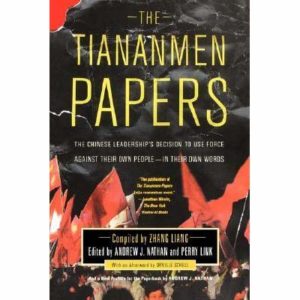 Zhou Fengsuo, a survivor of the 1989 Tiananmen Square massacre, told a Washington gathering that the White Paper protests represented a change in consciousness brought about by pandemic lockdowns, RFA reports. “We are here because more than 10 Uyghur people were burned to death in their own homes,” he said. “We are here because in Shanghai, the most prosperous city in the world, the middle-class for the first time realized they have no freedom – if they’re hungry, they cannot cry out.”
Zhou Fengsuo, a survivor of the 1989 Tiananmen Square massacre, told a Washington gathering that the White Paper protests represented a change in consciousness brought about by pandemic lockdowns, RFA reports. “We are here because more than 10 Uyghur people were burned to death in their own homes,” he said. “We are here because in Shanghai, the most prosperous city in the world, the middle-class for the first time realized they have no freedom – if they’re hungry, they cannot cry out.”
“For the first time in history after 1989,” Zhou added, “the Chinese people who benefited from the economic development realized that their life, their property, means nothing if there’s no freedom.”
The repressive ideas and techniques honed by the Chinese Communist Party on its domestic terrain are now being ‘exported’ abroad, according to the contributors to Defending Democracy in an Age of Sharp Power.
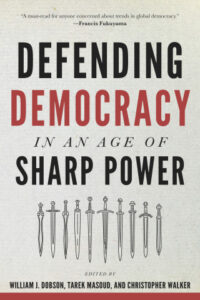 There is no question that the CCP is competing with determination in the ideas sphere, at home and abroad, says Christopher Walker, Vice President for Studies and Analysis at the National Endowment for Democracy, one of the book’s editors. It leverages now formidable global channels of information influence to deliver its messages and narratives at a global scale, he tells Lingua Sinica:
There is no question that the CCP is competing with determination in the ideas sphere, at home and abroad, says Christopher Walker, Vice President for Studies and Analysis at the National Endowment for Democracy, one of the book’s editors. It leverages now formidable global channels of information influence to deliver its messages and narratives at a global scale, he tells Lingua Sinica:
As Nadege Rolland explains in her contribution to the book, since assuming the country’s paramount leadership position Xi Jinping has given increasing prominence to “discourse power,” through which words are used to “create a narrative, and to manipulate the perceptions, behavior, and decisions of others”. Given the fact that Beijing is touting ideas such as the virtues of one-party rule, it’s wishful thinking to imagine that the CCP is not promoting its ideas, with purpose, to the wider world. And wishful thinking is not a strategy, of course. Open societies need to be far more clear-eyed about the ambitions and intentions of the Chinese Party-state and, accordingly, develop more systematic approaches for responding to the public arguments and ideas the CCP uses to advance its interests.
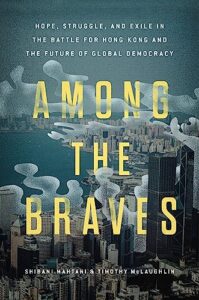 One of the patterns that emerges from the book is that the Chinese Party-state has progressively built out an extensive global media and information infrastructure, one that has been underestimated by many observers, Walker adds. Sarah Cook’s chapter spells out how the CCP “has dramatically expanded its efforts to shape media content in every region of the world” and the key ways in which Beijing seeks to manipulate the global information environment: “through propaganda; spreading disinformation; censoring critical coverage; and acquiring or building the infrastructure used to disseminate news and share information”. RTWT
One of the patterns that emerges from the book is that the Chinese Party-state has progressively built out an extensive global media and information infrastructure, one that has been underestimated by many observers, Walker adds. Sarah Cook’s chapter spells out how the CCP “has dramatically expanded its efforts to shape media content in every region of the world” and the key ways in which Beijing seeks to manipulate the global information environment: “through propaganda; spreading disinformation; censoring critical coverage; and acquiring or building the infrastructure used to disseminate news and share information”. RTWT
In “Among the Braves,” Shibani Mahtani and Timothy McLaughlin explore Beijing’s crackdown on Hong Kong’s pro-democracy movement through the eyes of four leading activists, The Post adds. The wife and husband journalists join Washington Post Live to discuss Hong Kong’s future, the implications for Taiwan and China’s role on the world stage.

